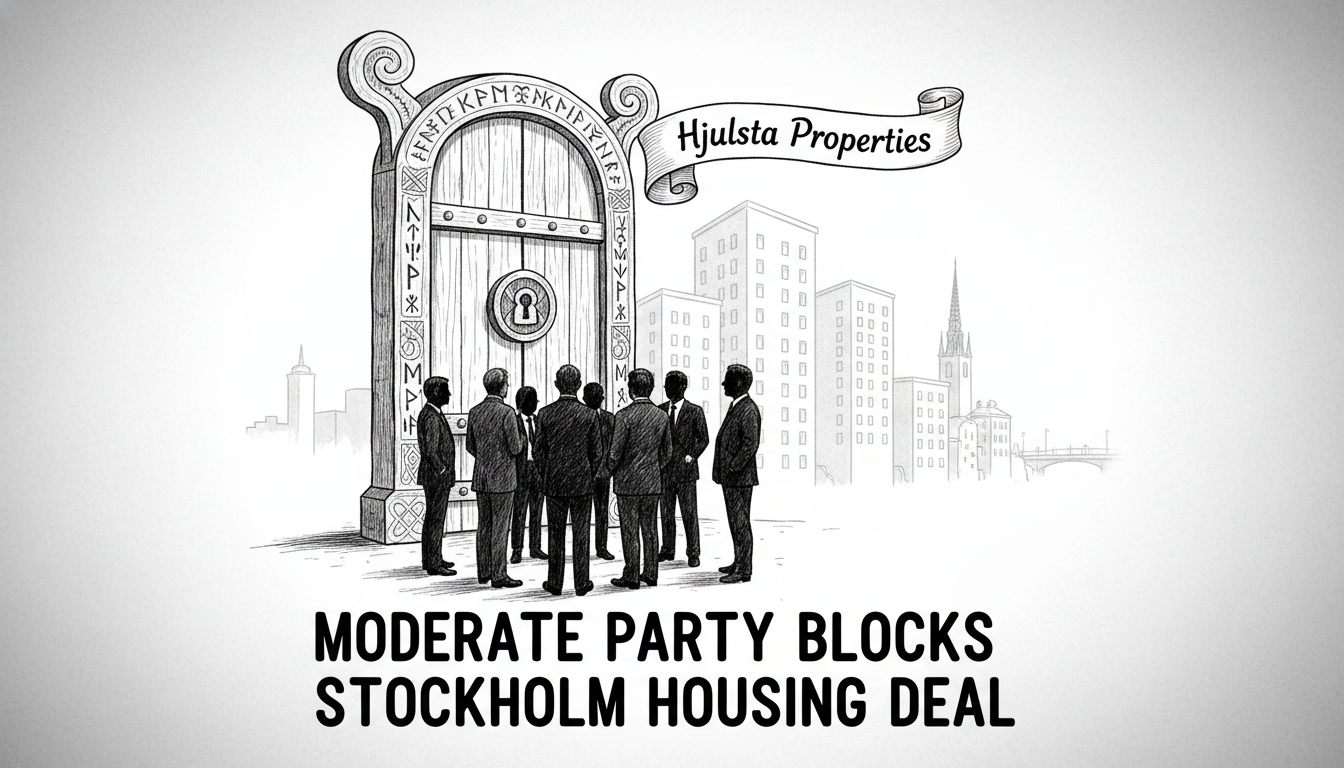Stockholm's Moderate Party is attempting to derail a major municipal housing transaction. The party has filed a minority referral against the city's repurchase of Hjulsta properties from Familjebostäder. This political maneuver could delay or potentially cancel the controversial deal.
The opposition claims the transaction represents poor financial judgment for Stockholm. They argue the city is overpaying for the housing properties. This marks the latest development in an ongoing political battle over municipal housing policy.
A minority referral allows political minorities in the municipal council to demand renewed investigation of approved matters. Swedish municipal law requires at least one-third of council members to support such a referral for it to proceed. The Moderate Party appears to have secured this threshold.
Deniz Butros, the housing commissioner for the Left Party, expressed skepticism about the opposition's move. He stated he cannot envision the deal moving forward under current circumstances. His comments highlight the political tensions surrounding Stockholm's housing market.
This confrontation represents typical Swedish municipal politics in action. Minority referrals serve as important checks and balances within the system. They allow opposition parties to challenge majority decisions they consider problematic.
Stockholm faces chronic housing shortages and affordability challenges. Municipal housing transactions like the Hjulsta deal carry significant weight for residents. The outcome could influence housing availability and pricing in the northern Stockholm district.
The political standoff reflects broader debates about public housing management. Conservative parties often advocate for market-based approaches while left-leaning parties support municipal control. This ideological divide frequently surfaces in Swedish housing policy discussions.
International observers should note that Swedish municipal governments wield substantial power over local housing markets. Decisions like the Hjulsta purchase directly impact urban development and resident welfare. The current political clash demonstrates how local governance affects daily life in Swedish cities.
What happens next depends on the referral process outcome. If the investigation proceeds, independent analysts will assess the deal's financial merits. Their findings could either validate the opposition's concerns or support the current administration's position.
The situation illustrates how Swedish consensus politics sometimes breaks down into partisan conflict. Even in famously collaborative Nordic systems, fundamental policy disagreements emerge. Housing remains one of the most contentious areas in urban Swedish politics.

